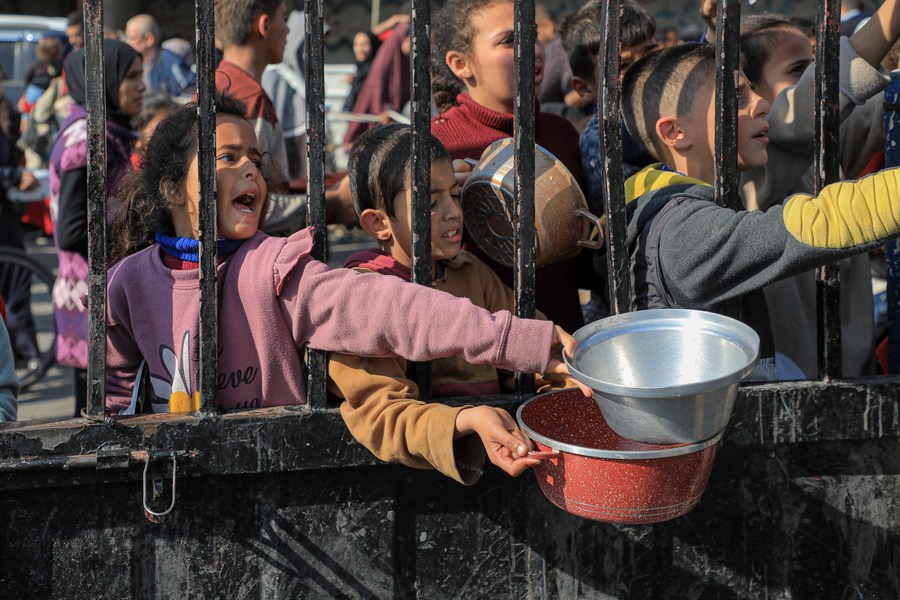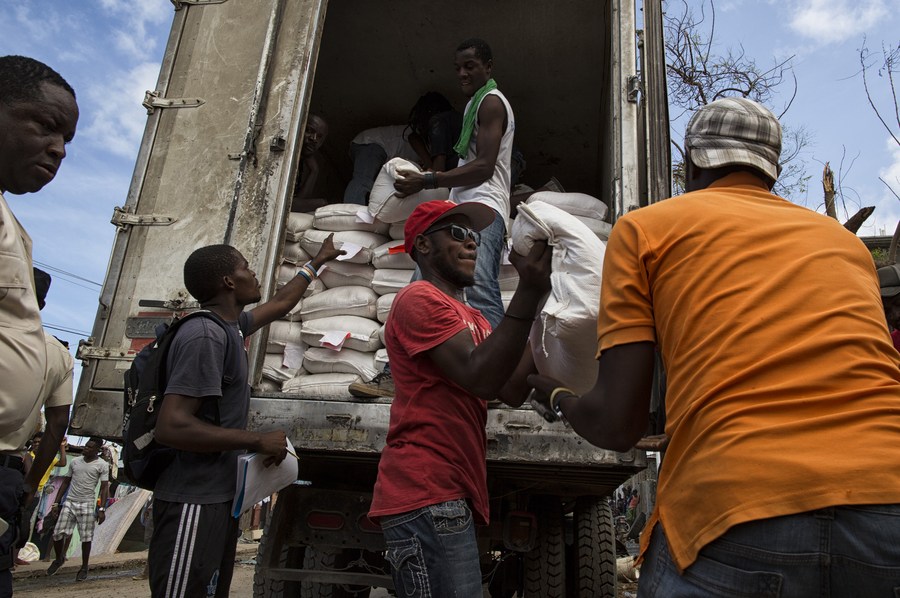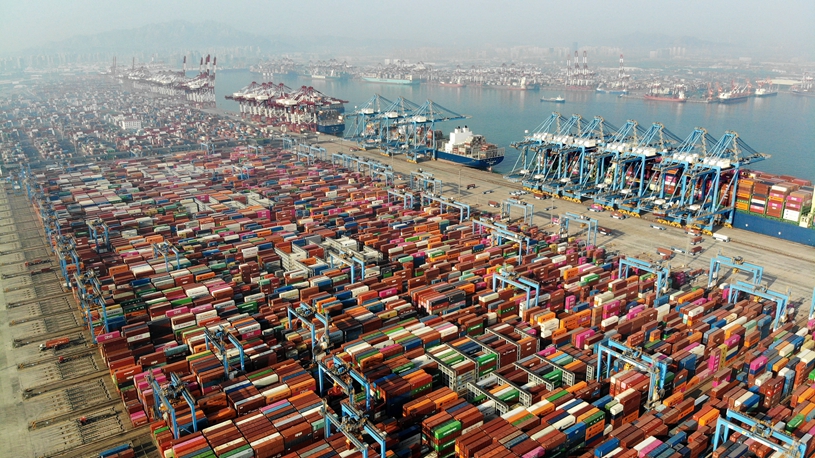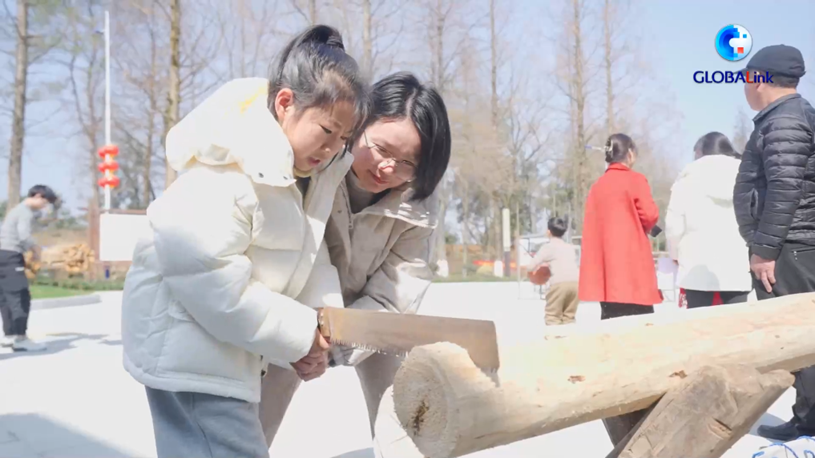
Children try to get food relief in the southern Gaza Strip city of Rafah, on Dec. 31, 2023. (Photo by Rizek Abdeljawad/Xinhua)
It is no coincidence that half of the world's hungry people live in conflict-affected zones.
UNITED NATIONS, Feb. 13 (Xinhua) -- Beth Bechdol, the Deputy Director-General of the Food and Agriculture Organization (FAO), on Tuesday underscored the urgent need to address the intertwined challenges of climate change and conflict to combat global food insecurity.
"Climate and conflict are the most important issues requiring urgent action to address global food insecurity," Bechdol told the Security Council high-level open debate on the impact of climate change and food insecurity on the maintenance of international peace and security.
Bechdol pointed out the clear scientific evidence and policy direction indicating that "climate change is compromising food security, and its impacts are a growing threat to international peace and security."
She highlighted the "alarming effect on people, the planet and ... what I would like to address ... agrifood systems," which encompasses the entire process of food production, from cultivation to storage.
With climate extremes becoming more frequent and intense, Bechdol noted that "the climate crisis spares no one, but it does not affect everyone equally or in the same way."
She drew attention to the heightened vulnerability of populations dependent on agriculture and natural resources, particularly those in rural areas or working as farmers.
"These populations' livelihoods are highly exposed and vulnerable to climate change impacts, therefore limiting their capacity to respond and making them prone to disputes arising from the scarcity of natural resources," Bechdol stated.
She stressed the importance of strong, viable livelihoods in mitigating climate-related security risks and the potential for climate change to contribute to conflict.

Image provided by the United Nations Stabilization Mission in Haiti (MINUSTAH) shows Haitian officials supervising the distribution of food supplies, in Jeremie, Haiti, Oct. 11, 2016. (Xinhua/Logan Abassi/UN/MINUSTAH)
Bechdol reiterated the FAO's commitment to addressing these challenges, saying that "for FAO, we increasingly find ourselves working in this very space."
She reminded the council that "there is no food security without peace, and no peace without food security!"
Highlighting the dire consequences of conflict on food security, Bechdol shared that "it is no coincidence that half of the world's hungry people live in conflict-affected zones."
She cited the 2023 Global Report on Food Crises, which identified conflict and climate change as the main drivers of food insecurity.
With 258 million people in 58 countries facing high levels of acute food insecurity, Bechdol emphasized the need for a multifaceted approach to tackle the root causes.
"While there may not be a direct causality between the two, there is clear evidence that climate change increases risks and drivers of conflict and instability," she explained.
Bechdol concluded by advocating for targeted actions to build climate-resilient agrifood systems and enhance peacebuilding efforts.
"We cannot neglect agriculture as a key solution to the growing threats from climate change, conflict and their impacts on food security," she urged, calling for a collective focus on supporting farmers, pastoralists, fisherfolk, and foresters to ensure no one is left behind. ■












